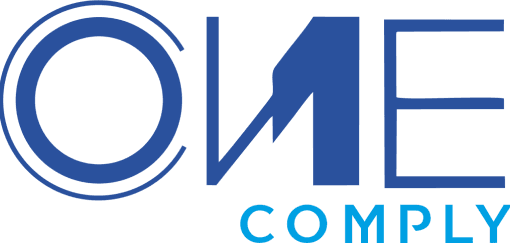Compliance Reporting

Compliance Reporting Mitigating Risk and Demonstrating Ethical Business Practices In today’s business world, compliance reporting has become an essential part of any organization’s operations. It is the process of ensuring that a company follows all relevant laws, regulations, and standards. Compliance reporting involves providing reports and documentation to regulators and other stakeholders to demonstrate that the organization is in compliance with applicable laws and regulations. Compliance reporting is the process of documenting and reporting the organization’s compliance with relevant laws, regulations, and standards. It is a requirement for many businesses, and failure to comply can result in severe penalties, including fines, legal action, and reputational damage. Compliance reporting involves a range of activities, including data gathering, analysis, and documentation. The process is highly regulated and varies depending on the industry and the jurisdiction. Compliance reporting can involve internal reporting to management, external reporting to regulatory bodies or auditors, or both. What is Compliance Reporting? Compliance reporting is the process of documenting and reporting the organization’s compliance with relevant laws, regulations, and standards. It is a requirement for many businesses, and failure to comply can result in severe penalties, including fines, legal action, and reputational damage. Compliance reporting involves a range of activities, including data gathering, analysis, and documentation. The process is highly regulated and varies depending on the industry and the jurisdiction. Compliance reporting can involve internal reporting to management, external reporting to regulatory bodies or auditors, or both. Why is Compliance Reporting Important? Compliance reporting is crucial for several reasons, including: Legal and Regulatory Compliance: Compliance reporting is essential to demonstrate that an organization is following all relevant laws and regulations. It ensures that the business is operating legally and ethically, and it mitigates the risk of legal and regulatory penalties. Risk Management: Compliance reporting is a critical component of risk management. It helps to identify potential compliance issues, and it enables businesses to take action to address them before they become more significant problems. Reputation: Compliance reporting can impact a company’s reputation. Demonstrating compliance can build trust with customers, partners, and other stakeholders, and it can help to enhance the organization’s reputation. Best Practices for Implementing Compliance Reporting To implement effective compliance reporting, businesses should follow these best practices: Understand the Regulations: Organizations should understand the relevant laws, regulations, and standards that apply to their operations. This includes identifying the regulatory bodies that oversee the industry and understanding their reporting requirements. Establish Processes: Businesses should establish processes for compliance reporting, including data gathering, analysis, and documentation. The processes should be well-documented and regularly reviewed to ensure they are effective. Assign Responsibility: Compliance reporting should have clear ownership within the organization. This includes identifying who is responsible for data collection, analysis, and reporting. The responsible parties should have the necessary skills and resources to perform their tasks effectively. Use Technology: Technology can be used to automate compliance reporting processes, making them more efficient and accurate. This includes using software tools for data collection, analysis, and reporting. Train Employees: Employees should receive training on compliance reporting and their roles and responsibilities in the process. This includes understanding the relevant regulations, reporting requirements, and the consequences of non-compliance. Conclusion Compliance reporting is an essential aspect of any organization’s operations. It is critical for legal and regulatory compliance, risk management, and reputation. Implementing effective compliance reporting involves understanding regulations, establishing processes, assigning responsibility, using technology, and training employees. By following these best practices, businesses can ensure they are meeting their compliance reporting obligations and mitigating the risk of non-compliance. Our Solution 1-Comply can assist you in helping with Compliance reporting by Auto mailing the Clients of their Compliance Completion Having a comprehensive list of all the applicable Compliances Having Role based User mapping Easing the User with User Friendly Dashboard Having a reference Document for each applicable compliance Visit our Website www.1-Comply.com and schedule a Demo today!!
